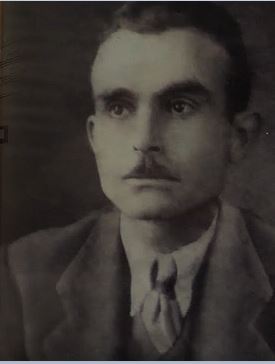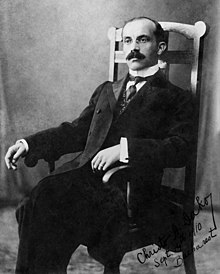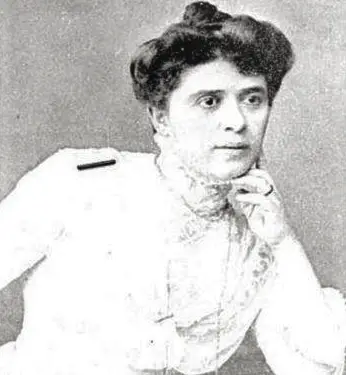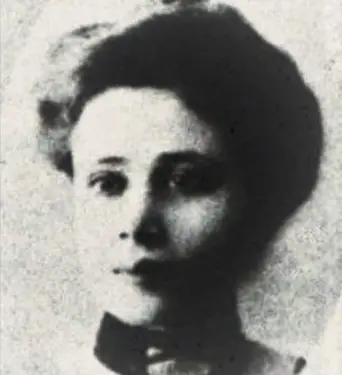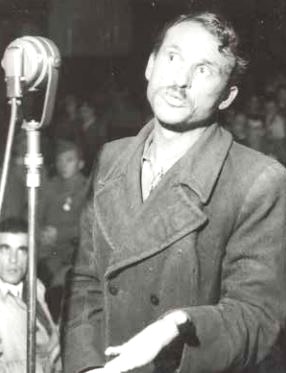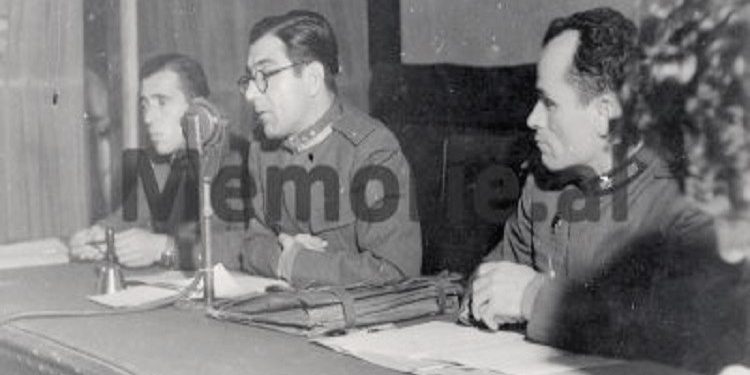Memorie.al / When Mirush Përmeti was shot by the communist regime, he left behind his wife Bedrie, who was in the last months of pregnancy with her third child. There were also two little girls, Ifete and Ermira. Two months after the shooting of Mirushi, his son, Esmeri, was born. He never knew his father. Mirush Përmeti was one of the talented engineers of Tirana in the 40s. A graduate of the University of Padua in Italy, he was one of the important intellectuals of the capital.
He was unjustly accused as part of the group of engineers of the Maliqi swamp and was shot together with others, also innocent. It was an “enemy group” invented as such by the dictator with the aim of eliminating the group of engineers, as part of the elite of Tirana. This would happen to others in succession.
The family of Mirush Përmeti lived at that time in a small and comfortable villa on “Budi” street in Tirana. It was the house he had built himself, as he was a civil engineer. A few months after the shooting of Mirush Përmet, the communist regime decided to evict his family from the apartment.
“Leaving the apartment was the most serious event that happened to my mother after the murder of my father, Mirush Përmeti. He told me that story thousands of times, that it never left his mind. Those days when the mother was experiencing the pain of her husband being shot, unknown people came to our villa and entered every corner of the house, to see her…!
They were accompanied by armed police. On one of the days, a young couple came as unwanted visitors to our house. They had entered every room, every corner of the house and then also the beautiful garden, which the father had designed with finesse.
After the visit, the young couple, who appeared to be important to the regime, had said they liked the house. Not a few days passed and armed policemen landed in front of the house and forcibly forced the mother to immediately leave her apartment…! They did not allow him to take any household furniture. The horrified woman with the baby in her arms and the little girls, had started to collect some necessary loot and my bed.
I was only two months old…! But the young communist woman had told her mother that she could not take that bed with her, that they needed it. The horrified mother had told her that she needed the bed for her newborn son…! ‘You can take anything, but not the baby’s bed, because the baby’s cradle is not stolen from anyone…’! It never happened’. But the woman had ordered the bed she wanted, for her children. The mother was forced to listen to the ghastly cry of the young communist couple…: your child does not deserve this bed…! He doesn’t even deserve to live…!
So my mother, Bedria, left her house, with a few rags, with us minor children. They forced him to live in a basement, in a neighborhood of Tirana. A basement that after a while would collapse, endangering our lives…! I will never forget the sufferings of the time of the dictatorship.
Even less can I forget the pain of my mother, for my father who shot us all, and the pain of being evicted from the house, which my father had built himself”, confesses Esmer Përmeti, the son of the engineer shot by the regime, Mirush Përmeti.
When Esmer Përmeti, together with his mother and two sisters left their apartment, the communist couple, Panajota and Vasil Konomi, lived in the beautiful villa and raised their children there. The bed of Mirush Përmet’s son remained there, to be enjoyed by the families of the communist Konomi couple.
In the beautiful courtyard of the villa of Mirush Përmeti, the cherished daughter of the communist family, Luljeta Konomi, would take her steps as a child. Luljeta was 7-8 years old at the time and probably remembers the details of the day when they landed on the property that her parents robbed with the stamp of the dictatorship. However, she lived a happy childhood, in the beautiful courtyards of the Përmeti family’s garden, and together with her family, for 50 years, they enjoyed that apartment, undeservedly. But it doesn’t end there.
With the overthrow of the communist dictatorship, Esmer Përmeti and his family started efforts to get their apartment looted by the communist regime that had just been overthrown. It took many efforts and legal battles to return to the robbed house.
Because Luljeta, the daughter of the Konomi family, was an important construction engineer and did her best to keep the stolen apartment for her parents. A low merciless battle, as merciless as her robbery had been.
We will go to another story even more painful than that of the Përmeti family. The two stories have one character in common, Luljeta, the daughter of the Konomi family, who was going to be a bride at the door of the Bozo family, also privileged by the communist regime.
The contribution of the Qiriazi sisters to the service of the motherland is well known. The Qiriazi sisters devoted their whole lives to education. Sevasti Qiriazi and her sister, Parashqevi Qiriazi, opened the first girls’ school in Korça in 1891. Their patriotic activity never stopped, until communism destroyed them by killing their children.
The story of Sevasti Qiriazi, one of the most prominent women in the history of Albania, is tragic. Sevasti Qiriazi gave everything to her homeland, and the homeland, occupied by the communist dictatorship, rewarded her with the murder of her son, Gjergji Dako, and the imprisonment of her other son, Aleksandër Dako.
In 1949, Gjergji Dako, the son of Sevasti Qiriazi and Kristo Dako, was arrested by the communist dictatorship. He was one of the most talented surgeons of that time. Due to the torture in the communist prison cells, Gjergji died in February 1949. Meanwhile, his brother, Aleksandri, Sevastia’s other son, was in prison. A few months later, Sevasti Qiriazi, died of despair.
The family left outside the cell was led by Sevastia’s sister, Parashqevi Qiriazi. After their property was robbed in Kamëz, where the “Qiriazi” Institute was also located, Parashkevia managed to buy a house in Tirana, on “Halim Xhelo” street. It was a private house.
Her villa was number 28. Parashkevia lived there together with Aleksandri’s family, Rozi and the three children. In 1953, Alexander was released from prison. He returned to life together with his wife, three children and his aunt, Parashqevi. In 1970, Parashqevi Qiriazi passed away.
Meanwhile, Aleksandri and his family continued to live in the apartment that his aunt had bought for him, until 1975. But Aleksandri continued to be targeted by the regime and constantly attacked. On October 15, 1975, with charges fabricated by the State Security, Aleksandër Dako, was interned in Tale of Lezha. A few months later, in January 1976, his villa was occupied by the family of Todi and Luljeta Bozos.
We don’t know if it was coincidence or fate, wanted by Luljeta Bozos, who grew up in the robbed house of an engineer shot by the regime, and then married in the robbed house of another imprisoned engineer, as an opponent of the regime . But the truth is that she robbed the house of the son of Sevasti Qiriazi, just as her parents had robbed the house of the shot engineer, Mirush Përmeti.
It seems as if Luljeta Bozo’s comfort depended directly on the shootings of Albania’s intellectuals, on the dictatorship. That’s why it seems so common, to hear Luljeta Bozo speak sympathetically about that time of the communist dictatorship, when Mirush Përmeti and his house were killed, robbed by Luljeta’s parents, and when Sevasti Qiriazi’s son was killed and imprisoned and exiled the other son, to leave the house to Luljeta, the daughter-in-law of her husband, a devout communist.
When Luljeta Bozo articulated that; in the time of the dictator there were more positive sides than negative, maybe he was talking about the beautiful life, in the looted villas. But she knows very well that with that expression, she has hurt many people. Luljeta was elected deputy of the Socialist Party, in the assembly that emerged from the elections of April 25, 2021. She was presented as the new image of this party, even though Luljeta is very early in this party, since when it was called the Party of Work of Albania.
Luljeta was a devout communist during the dictatorial system and was not just a beneficiary, but part of the communist regime, along with her husband’s family. Her brother-in-law, Irakli Bozo, was one of the judges of the dictatorship, who signed processes for the shooting of opponents of the regime. Irakli Bozo gave the decision to shoot Malik Bushati in 1946.
Kujto.al journalists have provided documents and facts that show the full story of the robbery of the Dako family’s property. A special article is dedicated to this story, where documents are published for the first time that show how, through the ugly scenarios of the State Security, the Bozo family succeeded in deporting Alexander Dako and robbing his villa at number 28, in “Halim Xhelo” neighborhood in Tirana.
An article that will be published soon: Dako the engineer’s confrontation with the Bozo couple, who had stolen his villa and put him on the street at the age of 70. Our past history is painful.
But it is even more painful, the history of the present, when Luljeta, together with her friends, challenge us with “the positive sides of the time of the dictatorship”. When they talk nostalgically about their happy life in the dictatorship, they don’t even want to know that they scratch millions of wounds of pain, which they caused on innocent Albanians.
These days, we tried to communicate with Rozi Dako, the granddaughter of Aleksandër Dako, to interview her and learn details about her family’s history. Rozi Dako does not want to talk. She writes that these days, the pain has returned for her family: “This event has shocked us a lot and I’m missing the air like back then…! The concern is extraordinary and an extremely painful page opens for our family,” she said for Kujto.al.
And this story reminds us of some significant lines of Primo Levi: “The hour of freedom fell heavy and dark, it filled our souls with joy and at the same time, with a painful feeling of shame, so we would have liked to clear our consciences and memories , from the ugliness I sent to them; it also filled us with worry, because we felt that this could not happen, that something so good and pure had never happened to us, that it would erase all our past, and the mark of desecration would not it would never be repaid to us, it would not be repaid by the memories of those who experienced it, nor by the places where it happened, nor by the stories and narratives that we would write.
Because, and this is the terrible privilege of my generation and people, no one else, ever, has managed to grasp the incurable nature of humiliation, which spreads like an epidemic. It is foolish to think that human justice will exterminate….”/ Memorie.al
Taken from Kujto.al




